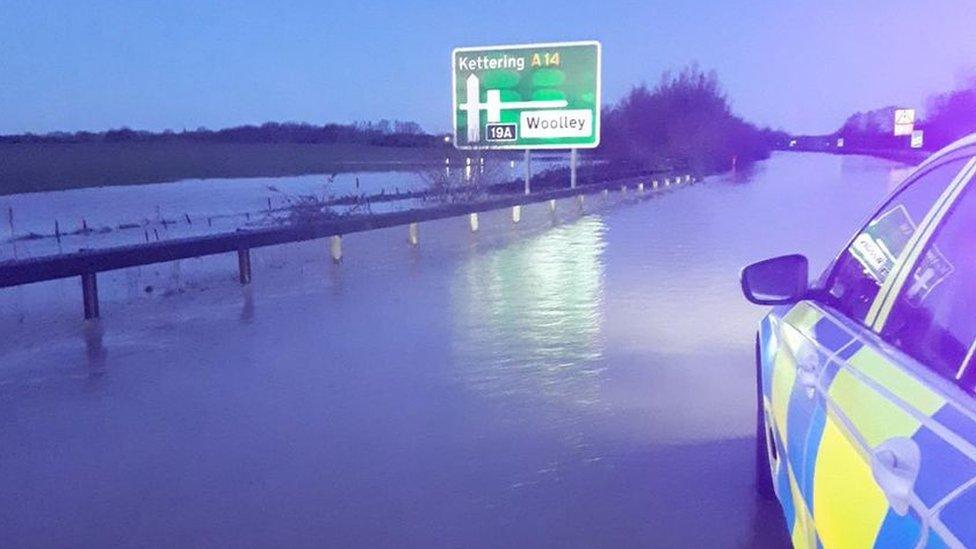How Christmas floods led one town to take action
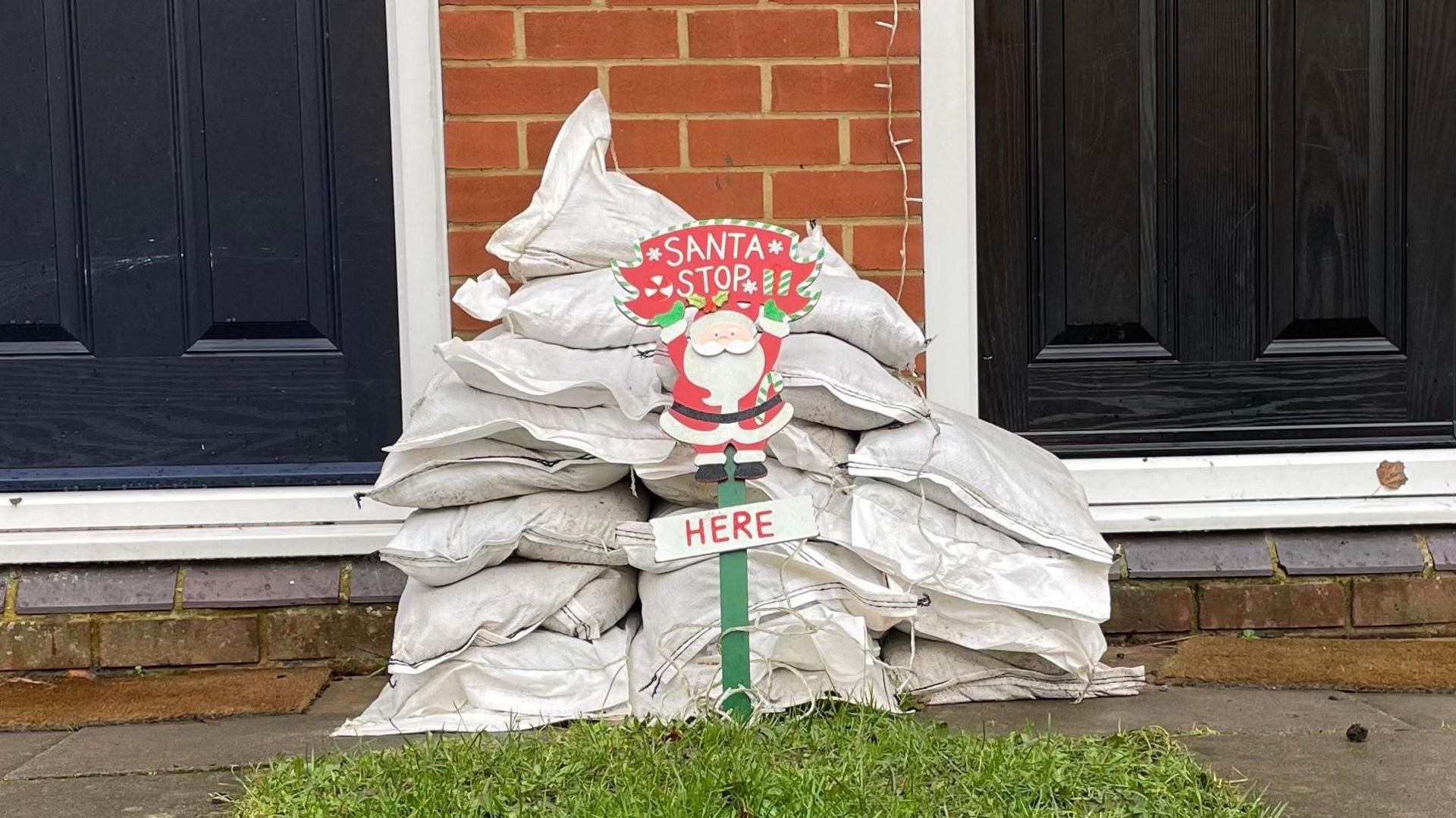
After "significant" floods in January, February and September this year some households fear they could happen again
- Published
Volunteer flood wardens are becoming a "vital" part of preparing for and responding to floods, according to the Environment Agency.
Newport Pagnell, near Milton Keynes, set up a flood action group after the River Ouzel burst its banks on Christmas Eve 2020.
In the days before, the area saw almost double the amount of expected rainfall. Water poured up from sewers, roads were closed and some homes damaged.
Now, when flooding happens or is imminent, the team are on the streets warning households, closing roads and distributing flood barriers, often before emergency services or the council can respond.
The Environment Agency said it would work with other flood groups, as about one in four homes could be at risk of flooding by 2050.
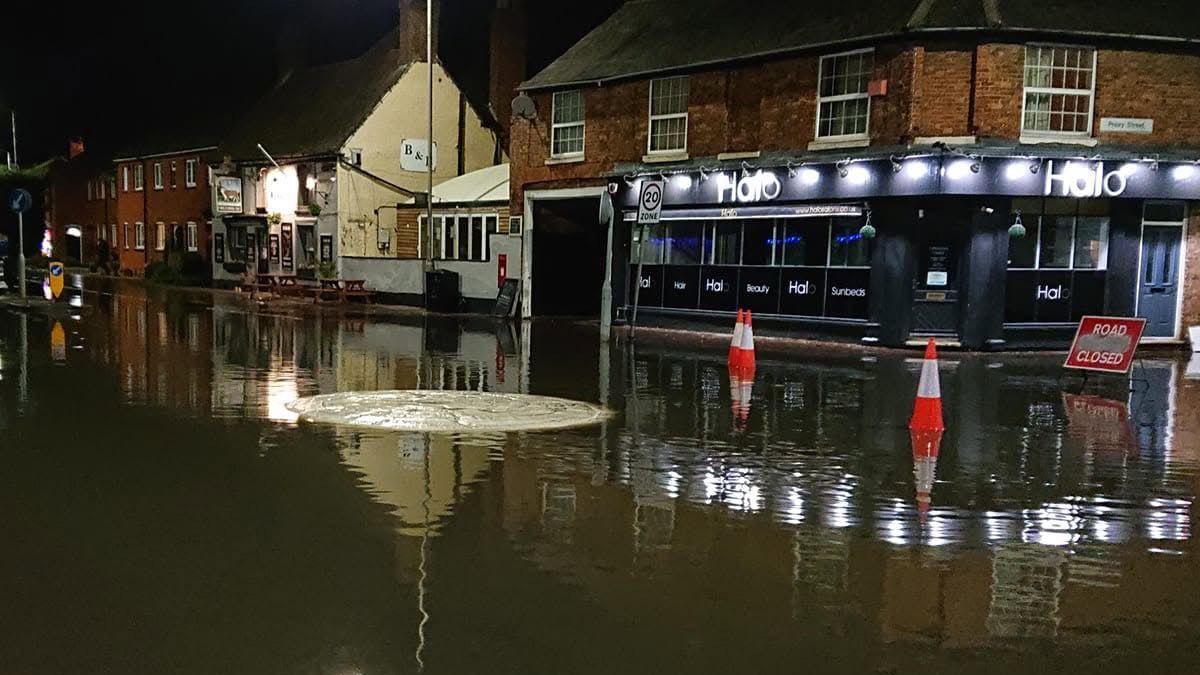
Flooding on Christmas Eve in 2020 saw roads closed and damage to some houses in Newport Pagnell
Richard Ayres admits having "middle-of-the-night" worries about rising flood waters.
He spent Christmas Eve 2020 defrosting the freezer in his Newport Pagnell flat after waist-high flooding knocked out the electricity.
Water had "backed up and caused an eruption" from a manhole, he recalled.
"It was shocking to see - the speed the water came up once that [manhole] had actually breached."
The water built up and "found the next weakest point, which was another manhole - that then went".
Eventually three manholes were "pouring essentially sewage straight into our car park".
The flats, which are raised above the ground, did not flood themselves but two cars were lost to water damage.
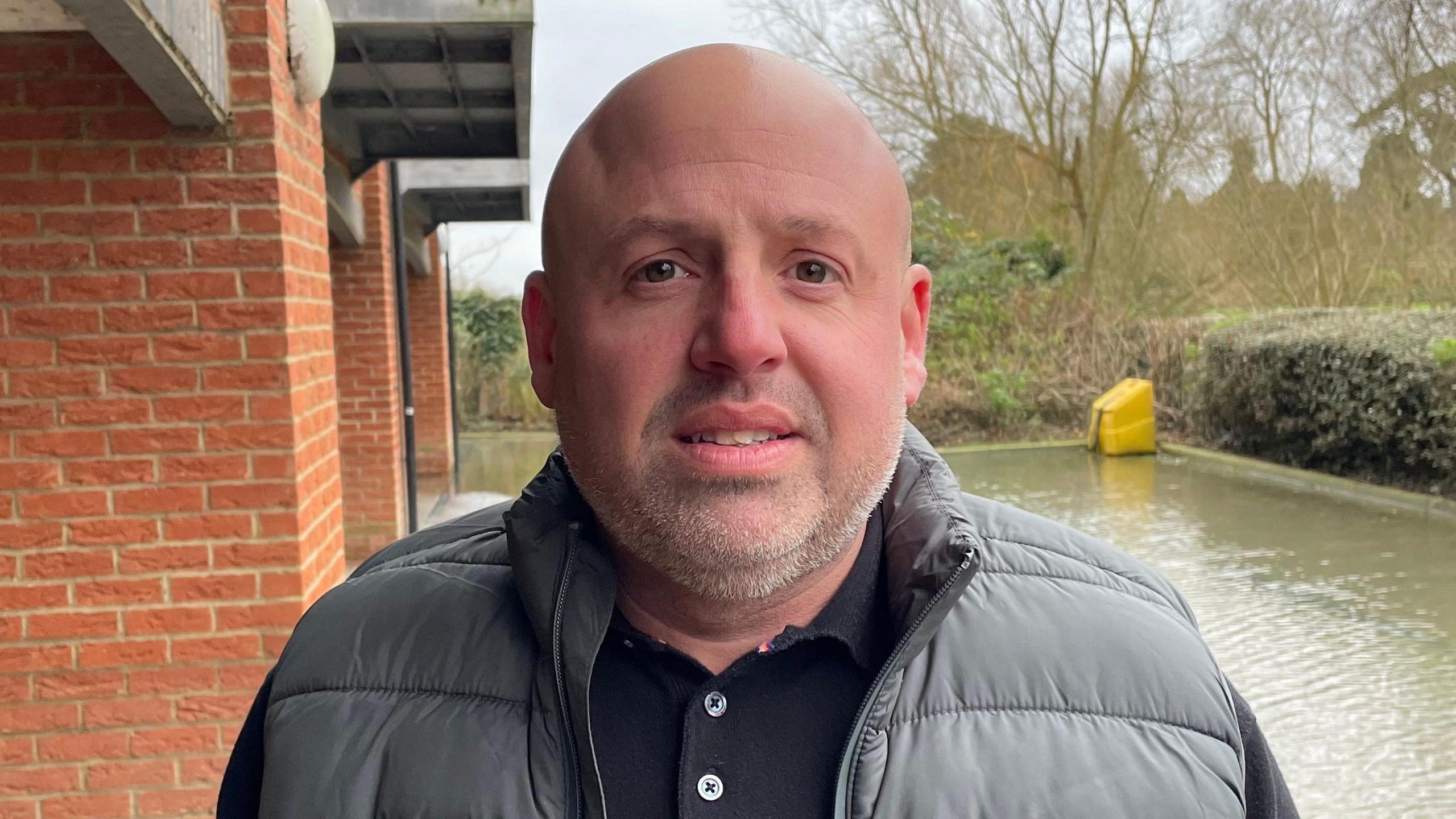
Richard Ayres said he had been surprised by the frequency and severity of flooding
Mr Ayres, 46, has lived in the block overlooking the River Ouzel for 18 years.
Living close to the river he anticipated some flooding, but he did not expect the "frequency and severity" or the sewer water.
Since the Christmas Eve floods, he has joined the town's flood group and become a volunteer flood warden.
The town saw significant flooding in January, February and September 2024, and the group serves as an "early warning" system, he said.
"We let each other know how quickly it's rising, whether we think people are going to be affected, whether we should start taking precautions."
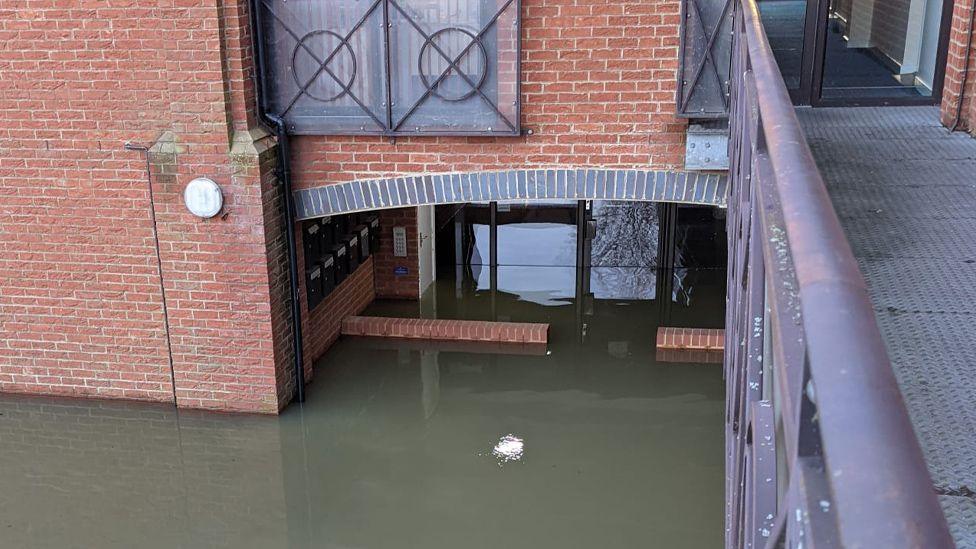
Waist high flood water has inundated the lobby and car park area of Mr Ayres' block of flats
David Adams, another member of the flood group, has fished in the River Ouzel for more than five decades.
It is home to pike, roach and perch, but Mr Adams, 72, said the way the river responds to rainfall was changing.
Unlike 30 years ago it was now rising faster and peaking higher, he said.
When we visited in the days after Storm Darragh, the river was fast moving and at flood.
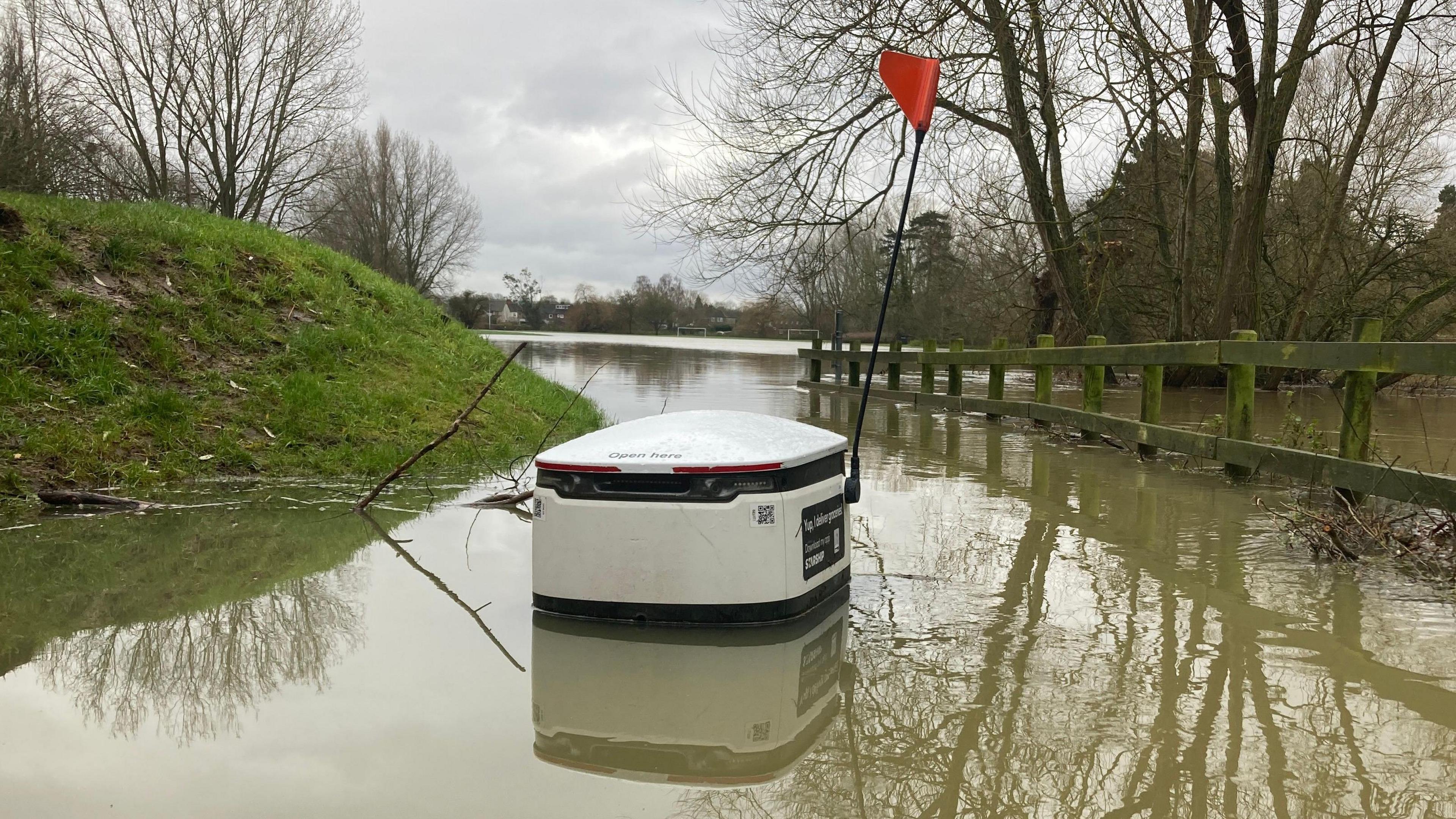
Starship robots transport groceries around Newport Pagnell but are not immune to rising floodwaters
"This is ridiculous," he said, looking into the water, "we've had about an inch and a quarter of rain gradually over three or four days."
Using data published online, Mr Adams, a retired housing association finance director, monitors sluice gates and pumping stations along the catchment of the Ouzel and nearby River Great Ouse, which the Ouzel flows into.
"As soon as it starts raining, I start looking."
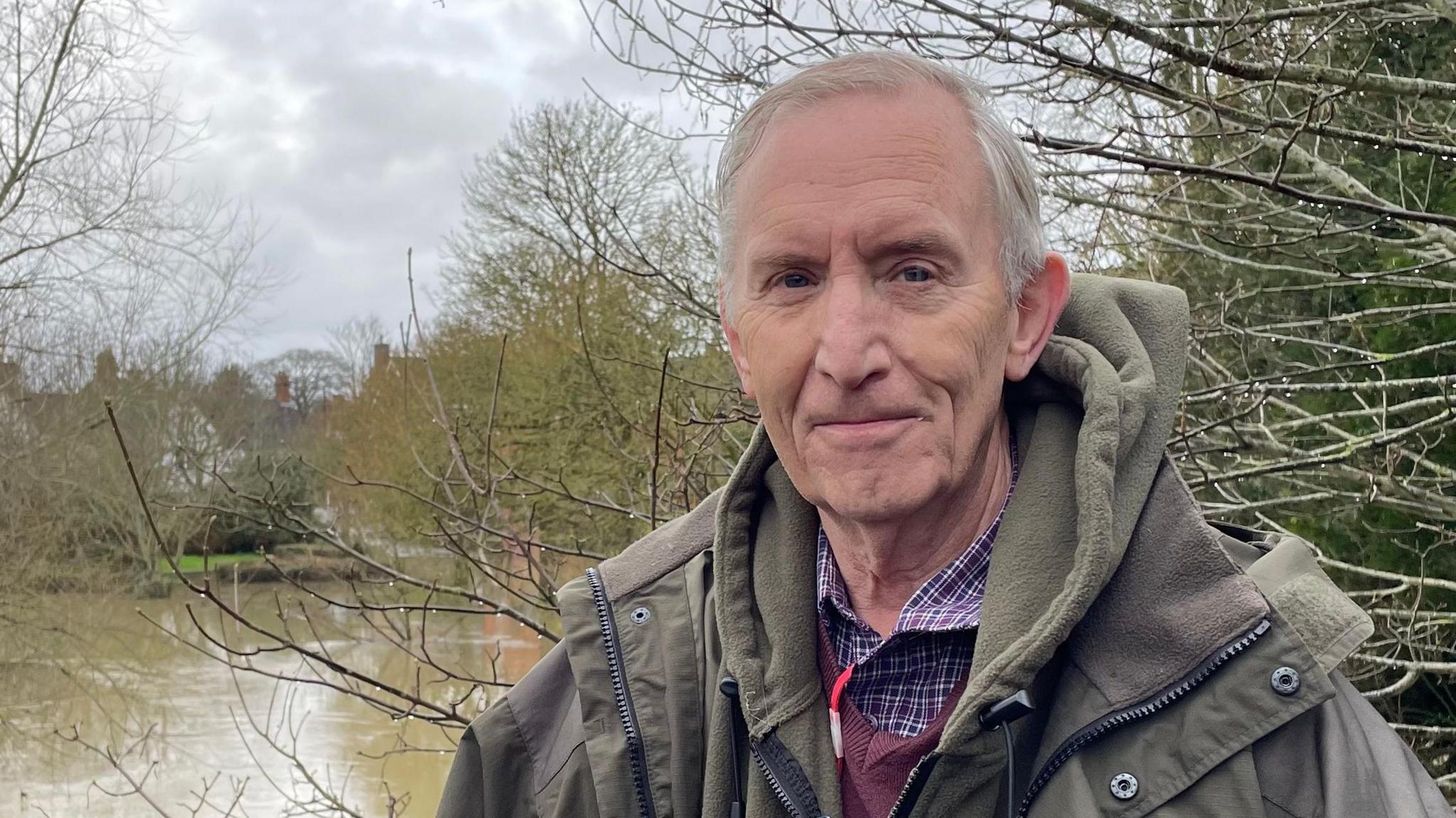
David Adams hoped the flood group meant the town would be "forearmed"
In September he recalled monitoring a "surge of about six feet of water" which was "frightening".
"It put the [pumping] station at the top end of Newport at record levels, and the poor people down Sherington Road - they were just under water."
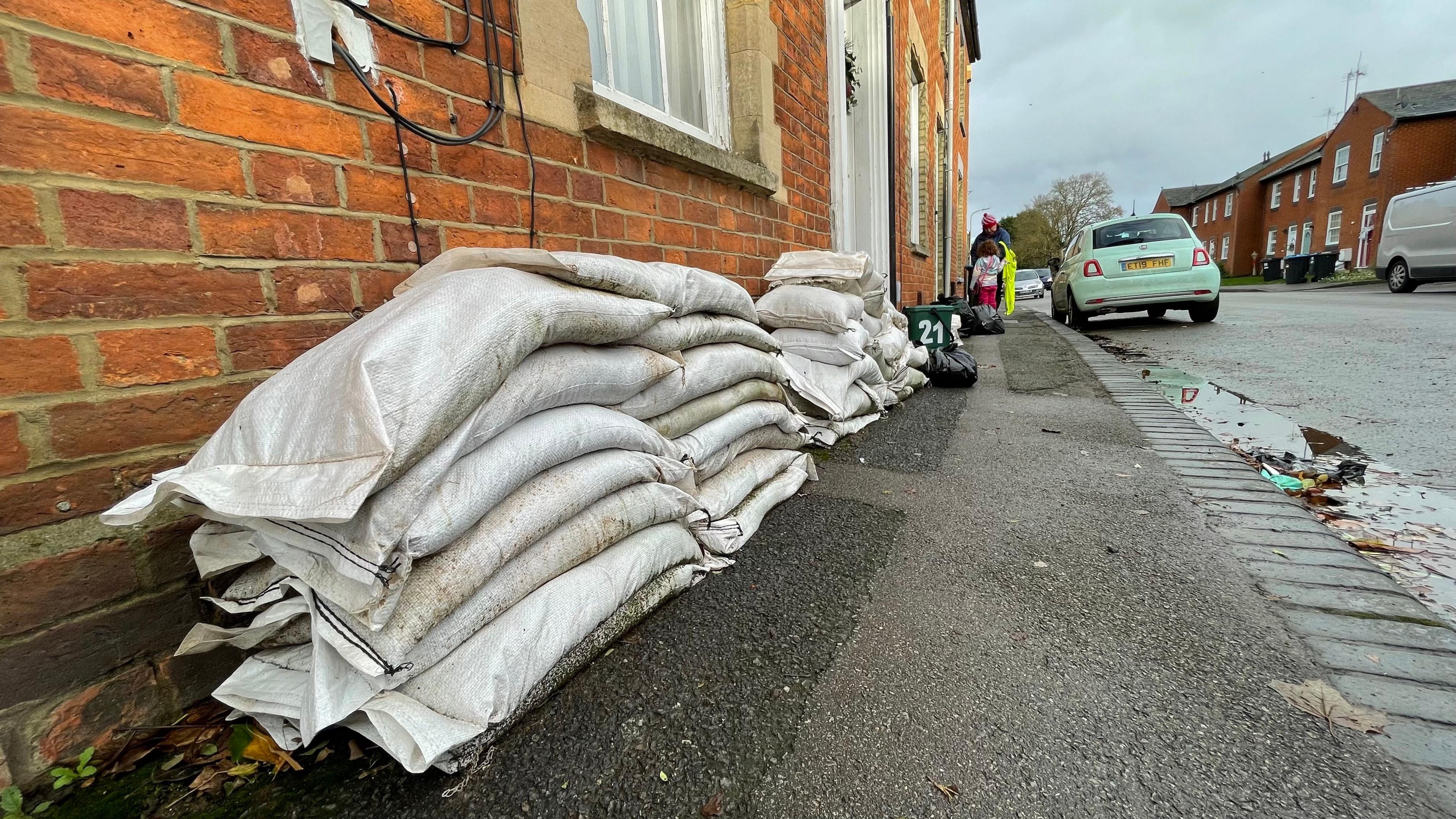
Households were said to be "hedging their bets" about more flooding
According to Chris Holroyde, the group's chair, the Christmas Eve floods caught many "on the hop" and there was confusion about who to contact for sandbags and information about road closures.
The 68-year-old and other flood wardens have also helped devise the town's community flood plan and bid for money to buy items such as temporary flood barriers.
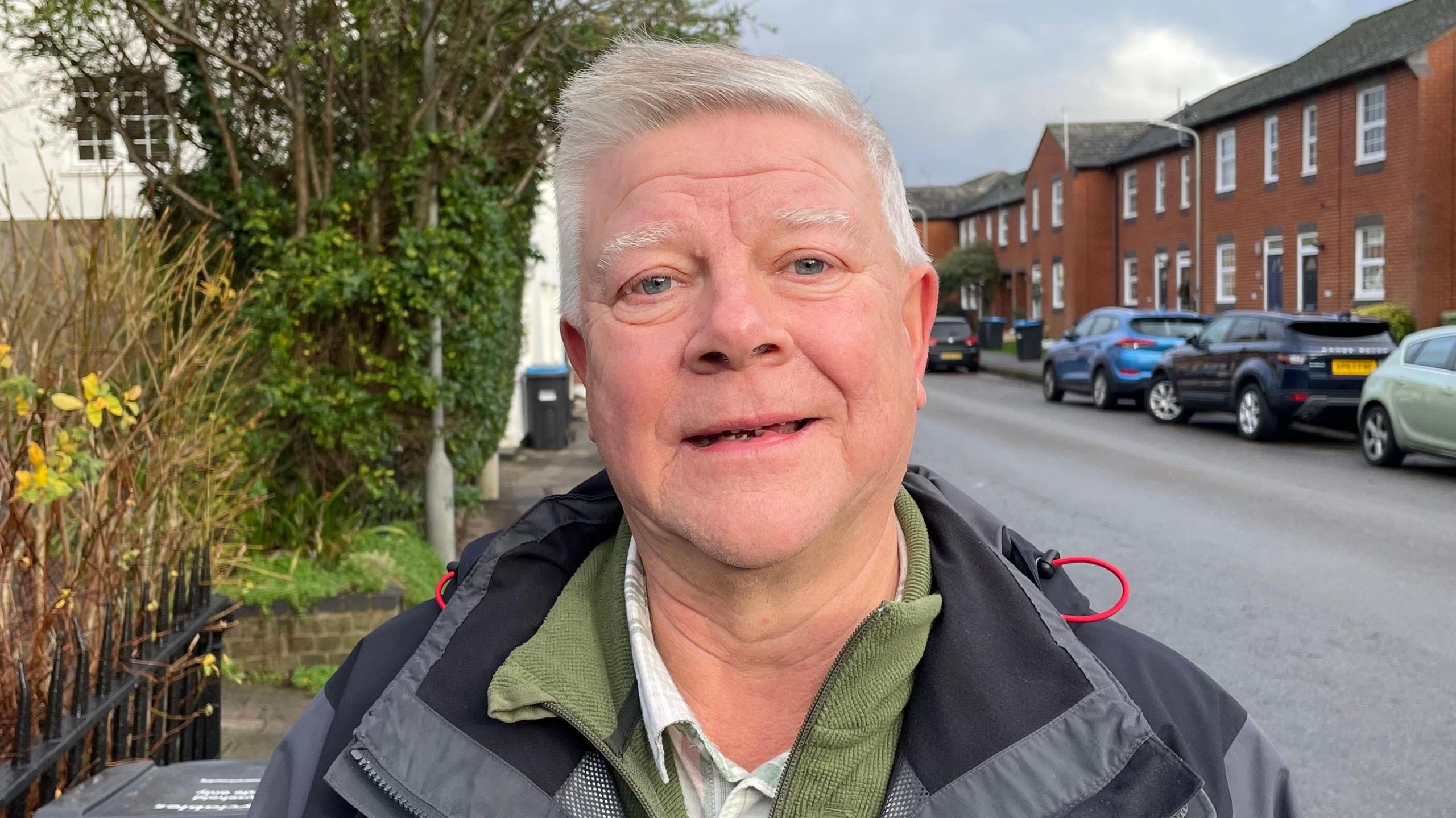
Chris Holroyde said there was concern about future flooding in Newport Pagnell
Mr Holroyde said there was a "great deal of concern" about the future, especially as "so much more flooding seems to be taking place".
A long-term aim of the group was to "work out how we try and at least mitigate as much as we can," he added.
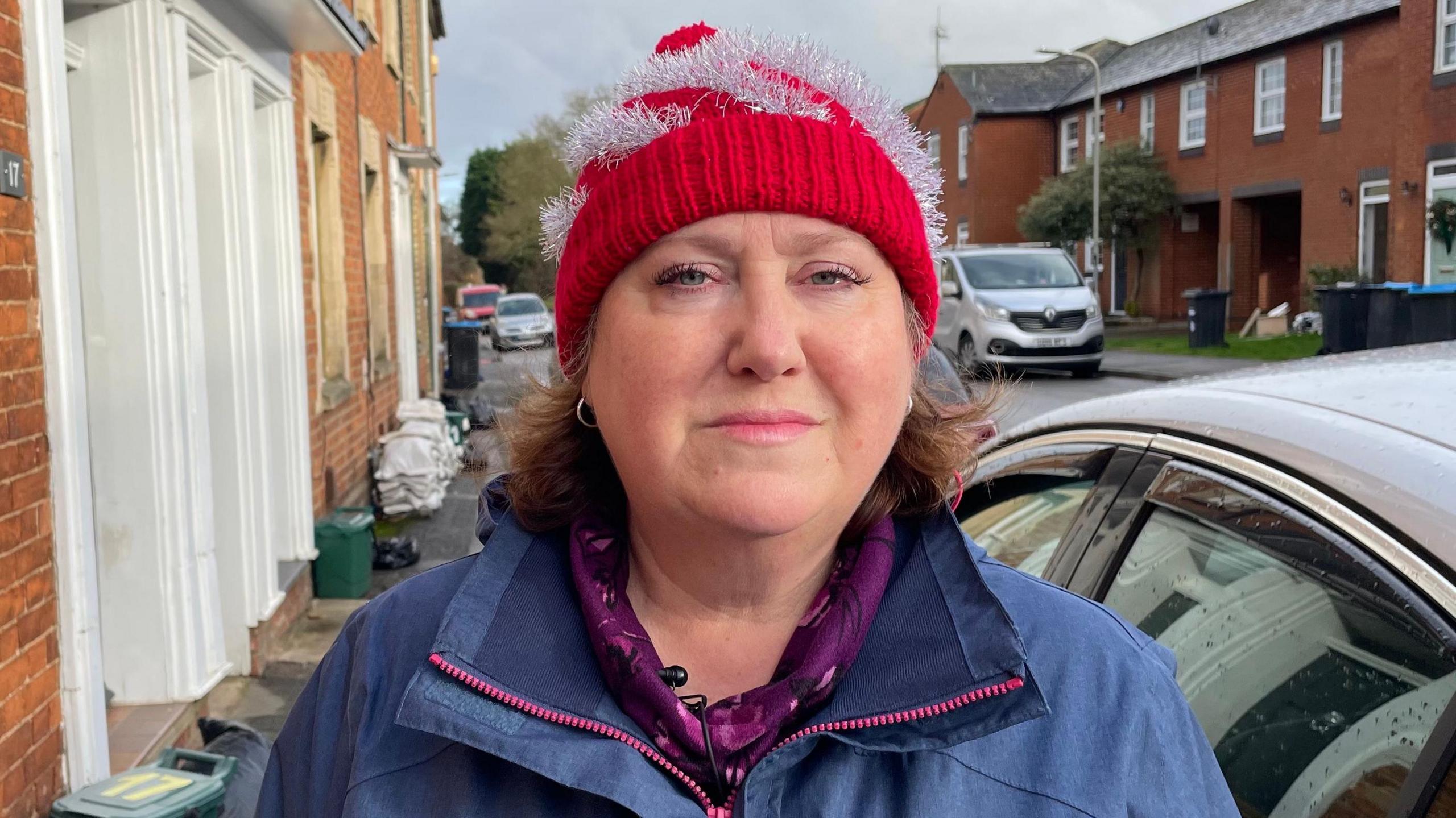
Jane Carr hoped the group would help coordinate the response to flooding
Liberal Democrat Jane Carr, who represents the area on Milton Keynes City Council, suggested the town form a flood group following the Christmas Eve floods.
Back then she said there was little "coordination".
"We didn't really have an idea of who could do what and when and how."
But now she said the group offers "community support".
"It's making sure people know where to come and who to talk to, so that we can actually get people the support they need," she said.
'Vital'
Emily Beasley, an operations manager with the Environment Agency, said her colleagues meet with the Newport Pagnell flood group every three months to discuss how to "make the community as resilient as possible".
She said the Environment Agency was "really up and open" to working with other flood action groups.
"It's so important to be as aware and prepared as possible for a flood event and the local flood groups are vital in getting those messages to the communities."
She also encouraged individuals to sign up for flood warnings and flood alerts, which send information about flooding over email and text message, as well as draw up their own flood plan, external.
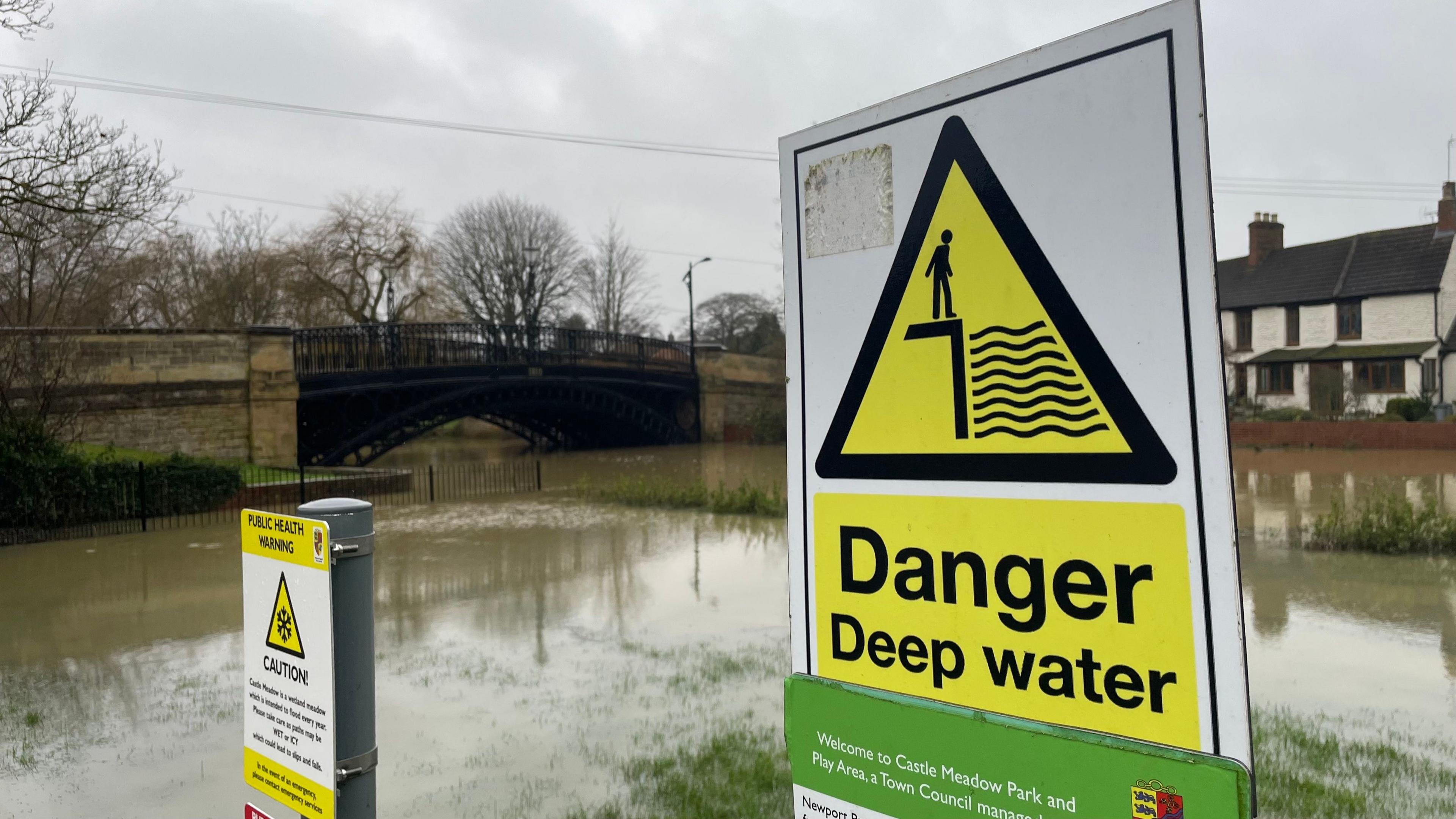
The town's Tickford Bridge overlooks a wetland meadow next to the River Ouzel, which is designed to flood each year
Is climate change to blame?
Mrs Beasley said climate change was bringing "intense rainfall" that happens "very quickly".
"It is what we should expect for the future. So we will likely see more flooding."
The UN's Intergovernmental Panel on Climate Change, external said there is more heavy rainfall because the warmer Earth gets, the more moisture the atmosphere can hold.
For every 1C of global warming, the atmosphere can hold around 7% more water. In 2023, the Earth was said to be nearly 1.5C warmer, external than it was between 1850 and 1900.
Researchers at ClimaMeter, external said storms such as Darragh were up to 10% wetter than previously due to "human-driven climate change".
Get in touch
Do you have a story suggestion for Beds, Herts & Bucks?
Follow Beds, Herts and Bucks news on BBC Sounds, Facebook, external, Instagram, external and X, external.
- Published24 December 2020
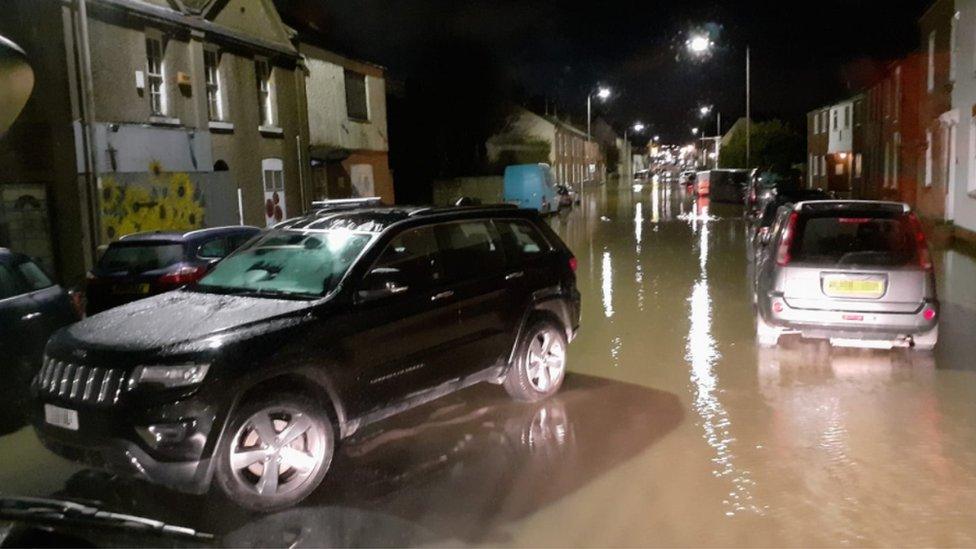
- Published11 November 2022
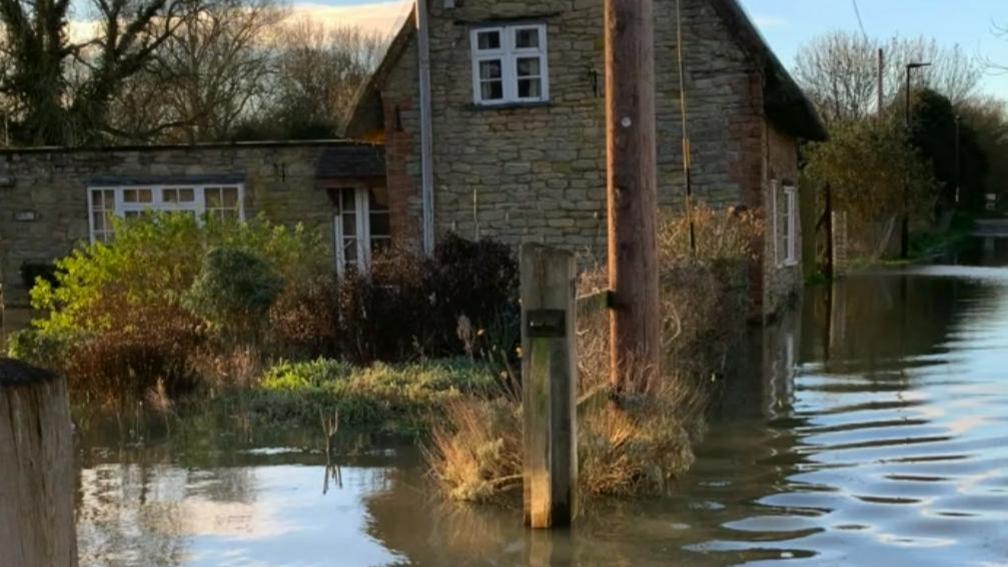
- Published24 December 2020
